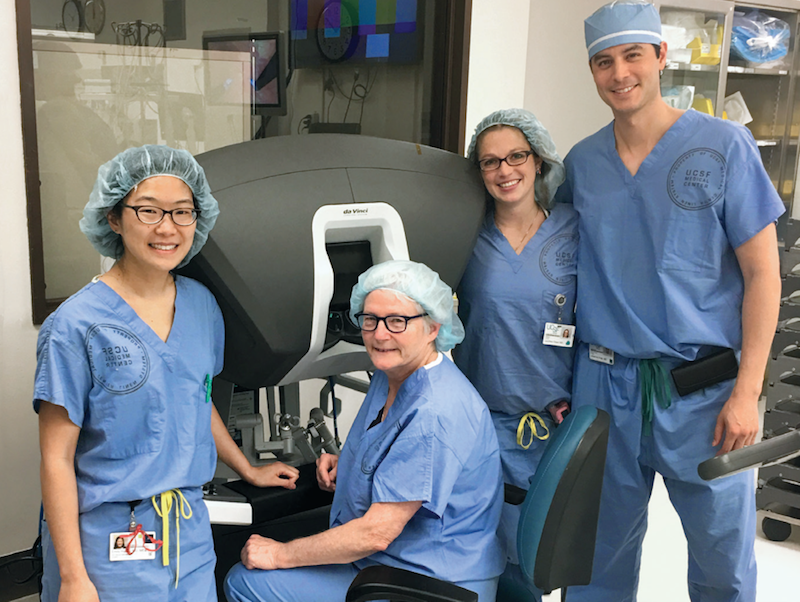Inside Surgery Spring/Summer 2017

The Spring/Summer 2017 issue of Inside Surgery is now available online. Inside Surgery is a Department of Surgery brochure showcasing the clinical and research advances of our faculty. The edition highlights minimally invasive bariatric surgery to treat metabolic disease, and robotic surgery deployed across a variety of surgical specialties within the Department. The newsletter begins with a tribute to the outgoing Chair, Nancy L. Ascher, M.D., Ph.D. via a letter from the Interim Chair:
UCSF Medical Center has long been at the forefront of innovation in every facet of surgery. Our outgoing chair of the Department of Surgery, Nancy L. Ascher, MD, PhD, led our team to new heights. She supported outstanding work across the full spectrum of surgical research and practice – from the Surgical Innovations initiative, which helps surgeons, engineers and trainees develop new surgical devices, to the Center for Maternal-Fetal Precision Medicine, which seeks to better diagnose and treat birth defects, to the Center for Surgery in Older Adults, which helps older patients better prepare for and recover from surgery. These are just a few of the creative, visionary developments Dr. Ascher championed during her 17 years as chair.
She remains active as a UCSF abdominal transplant surgeon, while bringing her leadership gifts to a new level as president of the Transplantation Society, an international nonprofit organization that provides global leadership in transplantation. It is my privilege to serve as interim chair of the UCSF Department of Surgery.
In this issue of Inside Surgery, I am pleased to share a few of the latest highlights in our state-of-the-art care for patients. Our general surgeons have pioneered many of the latest techniques for minimally invasive bariatric surgery, which can now be used to help patients with metabolic disease. Drawing on the world-class expertise across UCSF, we often partner with gastroenterologists to provide even less invasive approaches, which sometimes can be performed endoscopically – eliminating the need for any skin incisions. Our team is highly skilled in treating rare and complex disease, and helps ensure that all patients achieve the best possible outcomes. We are also excited to employ the latest developments in robotic surgery, which can facilitate procedures conducted in challenging anatomical spaces, and in some cases can offer an even less invasive approach, resulting in fewer complications, shorter hospital stays and less postoperative pain. My colleagues and I appreciate the privilege of working with you to provide exceptional patient care.
John P. Roberts, M.D.
Professor and Interim Chair
Department of Surgery Endowed Chair in Abdominal Transplantation
